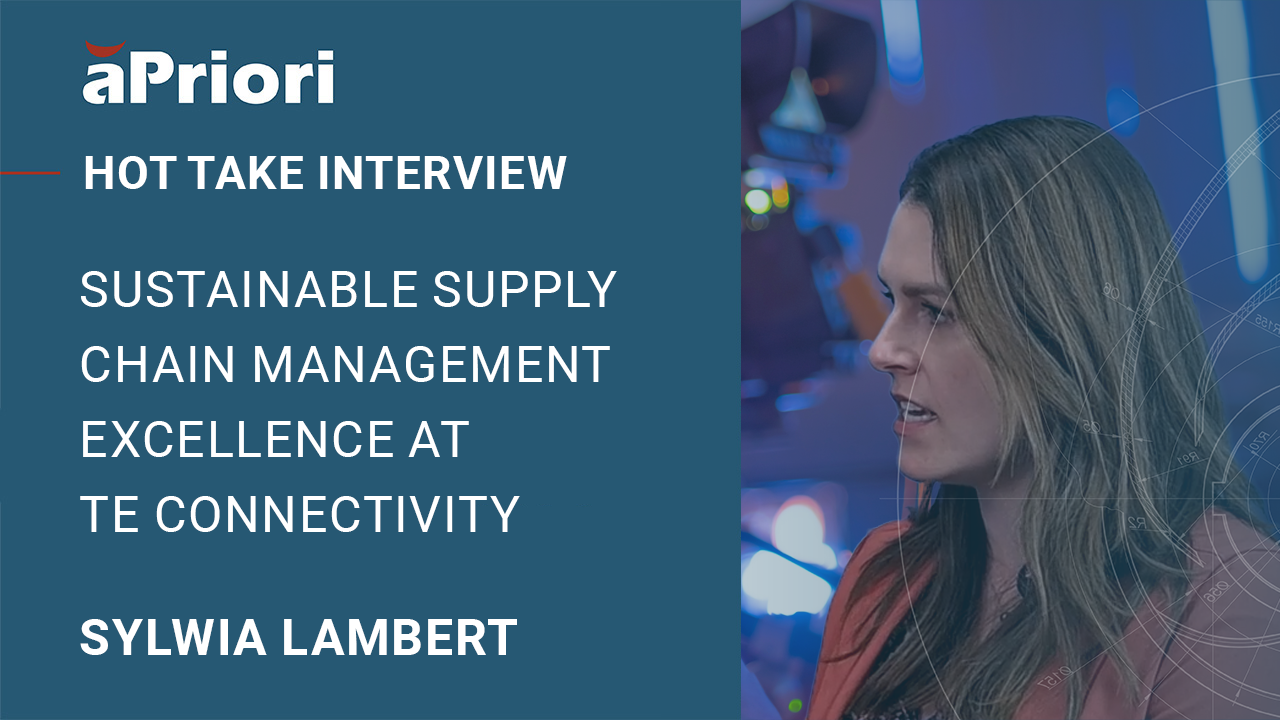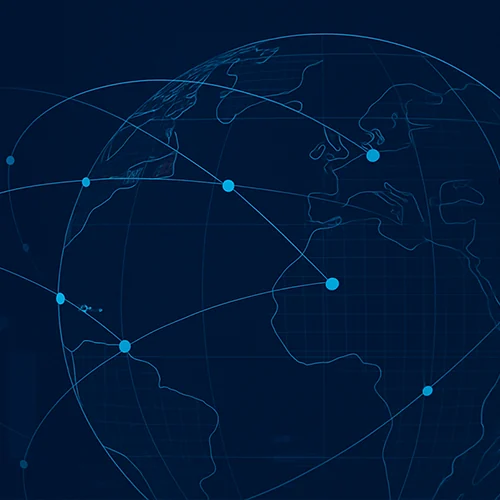Leah Archibald: What was it that brought you to look for a solution like aPriori?
Sylwia Lambert: So TE Connectivity is a huge corporation. We have 10 different business units across all the segments, and my team sits in corporate, we only have four team members dedicated to cost engineering, and as you can imagine, the requests come in, we only have a certain amount of capacity. So I was really looking for a tool that would increase our efficiency and allowed us to find opportunities faster to make those teams more efficient and getting savings quicker.
Leah Archibald: Tell me about your role at TE Connectivity and what you’re specifically in your job looking to do?
Sylwia Lambert: Yeah, so on my team, I wanna bring big impact to TE on a global scale, so we’re looking to save millions of dollars annually. I can’t say the target. And what we’re doing is enabling our buyers and sourcing managers to utilize facts and data in order to have mindful conversations with our suppliers to drive costs down, but also determine what a fair price is for our products that they’re manufacturing.
Leah Archibald: So I’m sure in terms of when you’re putting together the secret sauce of how to get the right price and the right relationship with the supplier… I bet there’s a bunch of things you need the data for the should cost, you need to know how their factories are mapped, know much information as you can. What else are you trying to find out?
Sylwia Lambert: For us it’s really understanding where their cost transparency is… And what I mentioned in my presentation is manufacturing transparency, because we need to know where they’re inefficient, because if we understand where they’re inefficient, we can also support with our team members on our supplier development team to improve their processes. So they get improvement on their scrap, improvement on their process, we get cost reduction, it should be like I mentioned, more of a win-win situation versus us just telling us, “give us 10% down now.” So we’re trying to have those mindful fact, more oomph behind the conversation.
Leah Archibald: Let me ask you another question. A lot of companies are in addition to looking at should costs, are starting to look at should carbon.
Sylwia Lambert: Oh, yeah.
Leah Archibald: Which is a new term, but we’re using it, are you looking towards sustainability and accurate data on that?
Sylwia Lambert: Yeah, so we started to do some scientific or science-based targets for scope through sustainability as a company, and as part of that initiative, my team has some metrics included to reduce. So what I mentioned with the process improvement at our suppliers, that’s where I see a very easy and quick link to sustainability. So if we’re reducing the waste or the scrap at our suppliers, that means that we’re not putting more material into the world and we’re naturally not only reducing cost, but we’re also reducing greenhouse gas emissions. So to me, there is a clear link to those two items.


